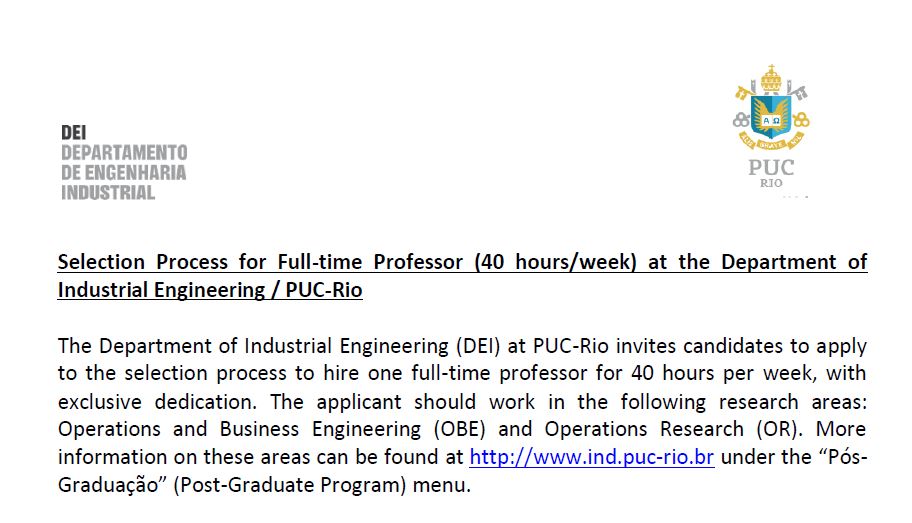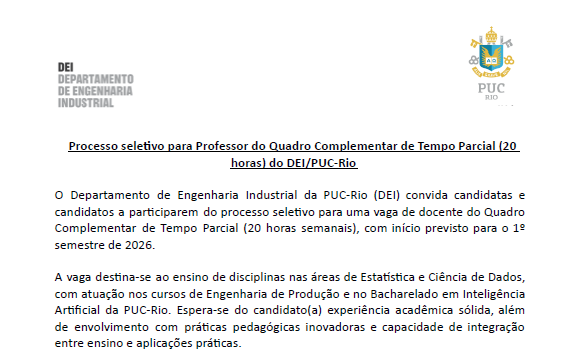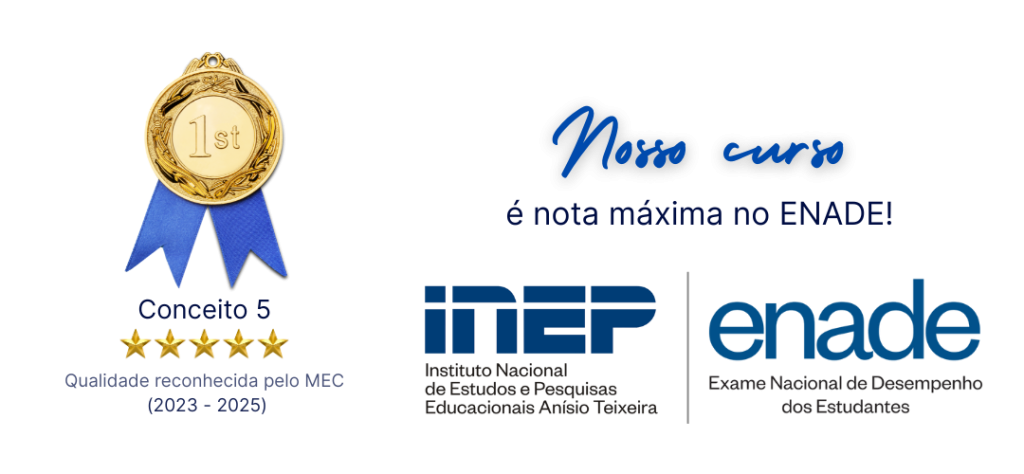📢 Academic opportunities at DEI/PUC-Rio
Applications are now open for two faculty positions at DEI/PUC-Rio. Click the links below for full details.

Applications open until 14/09/2025 – Full-time position

Applications open until 15/08/2025 – Part-time position
📌 Important Deadlines:
- Complementary Track (20h): applications open until 15/08/2025
- Main Track (40h): applications open until 14/09/2025
📌 Inquiries and document submission:
- 40h (full-time exclusive): Fernanda Frias – flf@puc-rio.br
- 20h (part-time): Prof. Paula Maçaira – paulamacaira@puc-rio.br
About us
Since 1967, the Department of Industrial Engineering of PUC-RIO (DEI) is continuously working to offer excellent education both in the undergraduate and in graduate levels, contributing to train highly qualified human resources and to develop state-of-the-art research which is published in highly-impact, qualified scientific journals.
Undergraduate course
At the undergraduate level, the department offers the Production Engineering course, training students for a global environment and providing them with a socioeconomic perspective. International cooperation with highly-qualified international institutions is continuously and strongly stimulated through International Programs. Presently, the undergraduate course in Production Engineering is responsible for almost half of the engineers that graduate at PUC-Rio each year, who are avidly absorbed by the market.

Graduate course
At the graduate level, the department trains highly qualified researchers and professionals by offering three courses: the Doctor Degree in Production Engineering, the Master Degree in Production Engineering and the Professional Master in Logistics, to meet the demand for training researchers and highly qualified professionals.
The Department has modern infrastructure for students and researchers, including research laboratories that work with large data repositories, and qualitative, quantitative and analytical methods for research and training, and resources for teaching and research.
